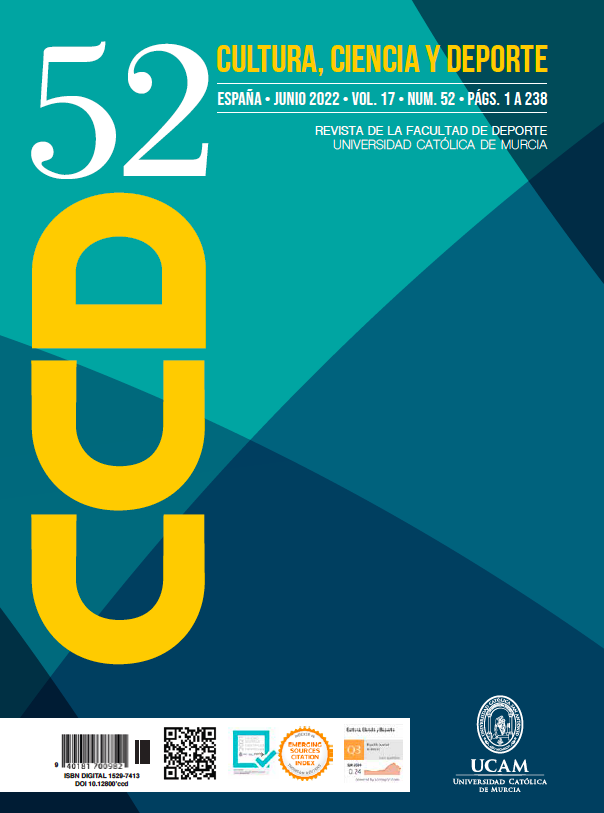Effect of a gamified program on physical fitness and motor coordination
DOI:
https://doi.org/10.12800/ccd.v17i52.1786Resumen
The objective of this study was to analyze the effect on motor coordination, lower body strength and agility of a gamified Physical Education programme developed to improve the ability to jump in schoolchildren between 8 and 11 years old. A pre-post quasi-experimental design was used with two groups (experimental group: 172 boys and 157 girls; Control group: 99 boys and 69 girls). Motor coordination was measured through the 3JS test, the ability to jump horizontally with feet together, and the ability to jump vertically by jumping with counter movement. Agility was assessed through the 4x10 test. A mixed design of factorial variance analysis was applied in which the intervention and sex were inter-subject fixed effect factors, while the time of measurement of the variable was a repeated measures factor within-subjects with two levels. The present study showed that a gamified teaching approach in Physical Education improved the performance of lower body strength, agility, and motor coordination. However, no differences were found based on sex and age.
Publicado
Cómo citar
Número
Sección
Licencia
Derechos de autor 2022 Creative Commons Attribution License

Esta obra está bajo una licencia internacional Creative Commons Atribución-NoComercial-CompartirIgual 4.0.
Los autores que publican en esta revista están de acuerdo con los siguientes términos:- Los autores conservan los derechos de autor y garantizan a la revista el derecho de ser la primera publicación del trabajo al igual que licenciado bajo una Creative Commons Attribution License que permite a otros compartir el trabajo con un reconocimiento de la autoría del trabajo y la publicación inicial en esta revista.
















